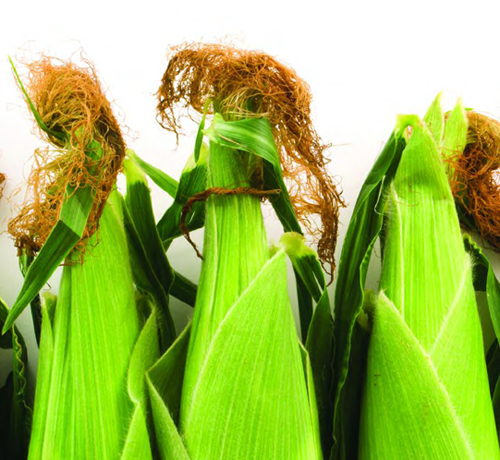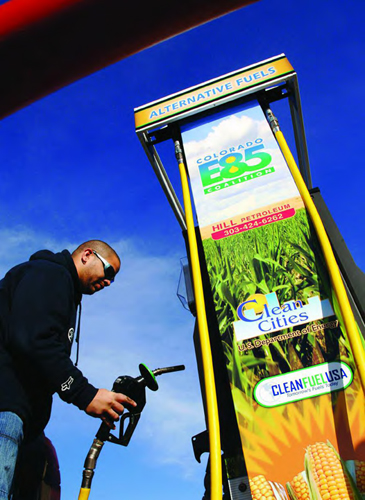Biomass
Biomass is plant matter and dried animal waste. Plant biomass, such as wood, corn, and sugar cane, is renewable because we can grow it. Animal waste is renewable because, well, animals do what comes naturally.
We burn some biomass and fossil fuels for heat energy. Biomass and fossil fuels have something else in common. Fossil fuels came from plants and animals too. However, those plants and animals lived long ago. In contrast to biomass, fossil fuels take millions of years to form, so they are nonrenewable energies.
Sometimes we don't burn biomass, but burn a fuel made from it. For example, we grow corn and sugar cane for the production of a biofuel called ethanol. Burning biomass and biofuels release carbon dioxide just as burning fossil fuels do. However, if we replace the harvested biomass with new plants, they will absorb some of the carbon dioxide during photosynthesis.

Photosynthesis is a process by which most plants make their own food by absorbing carbon dioxide and water from the air.
